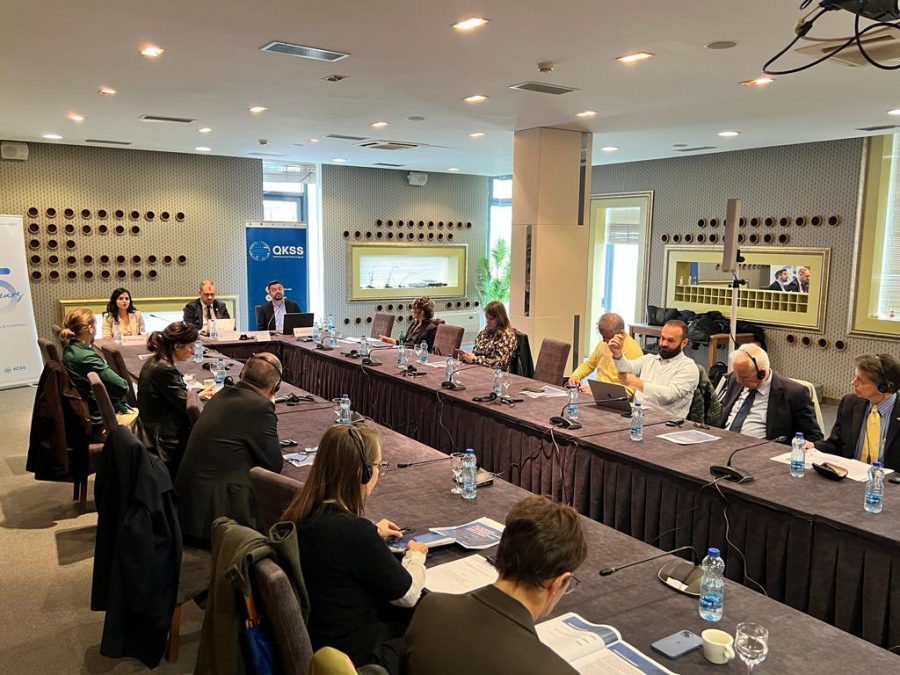11/05/2023

A new publication of the Kosovo Center for Security Studies (KCSS), authored by Ramadan Ilazi and Adelina Hasani, examines the last agreement between Kosovo and Serbia within the dialogue mediated by the EU for the normalization of relations. . Kosovo and Serbia have accepted ( verbally ) the "Agreement on the road to normalization" proposed by the EU on February 27, as well as the implementation annex at the Ohrid meeting between Prime Minister Kurti and President Vucic on March 18. Analysis by Dr Ilazi and Dr Hasani was presented during a round table organized by KCSS with local and international actors in Kosovo.
The executive director of KCSS, Mr. Mentor Vrajolli, at the opening of the roundtable, said that "The Agreement on the Normalization Path between Kosovo and Serbia (APN) creates opportunities for a new state of relations between the two countries, although a new status- quo. Through this agreement, Serbia practically recognizes the attributes of the citizenship of Kosovo, accepting the national symbols, as well as the obligation to respect the territorial integrity and sovereignty of Kosovo, and treat Kosovo based on the principles of the United Nations (UN) Charter, and Treaty of the European Union (TBE).
According to Adelina Hasani , "The Government of Kosovo should improve transparency and engagement with civil society within the dialogue for normalization, and for this purpose publish periodic reports on the state of the dialogue for normalization and the implementation of agreements. The Prime Minister of Kosovo must report regularly to the Assembly of Kosovo on the normalization dialogue, a practice that has been followed by previous governments." She further added that "The language used by political leaders and other public officials in Serbia and Kosovo towards each other and in the face of the agreement must change urgently. In this context, the rhetoric of Serbian President Vučić towards Kosovar Prime Minister Kurti is particularly disturbing as it incites hatred and undermines inter-ethnic relations in Kosovo. On the other hand, Kosovar leaders should increase their efforts to send affirmative messages to the Serbian community in Kosovo, including in the Serbian language."
The other author of the analysis Ramadan Ilazi , emphasized that "The agreement on the path towards the normalization of relations between Kosovo and Serbia has been supported by the European Council, which marks the first time that all 27 member states of the European Union have supported an agreement from the normalization dialogue process". He also pointed out that now "The role of the European Union (EU) as a facilitator in the dialogue for the normalization of relations between Kosovo and Serbia has evolved and the EU has considerable responsibility to promote the implementation of the agreement, because now the provisions of the Agreement will constitute a contractual obligation to the EU from Serbia and Kosovo within the European integration process of the two states". However, he also noted that "the agreement on the path to normalization of relations marks the first time that Kosovo accepts Serbia's position on the status of Kosovo and the indicators so far are not hopeful (based on the votes for accepting the request for membership in the Council of Europe), that support for the Agreement in the European Council will bring changes in the attitude of the five EU member states that have not recognized Kosovo